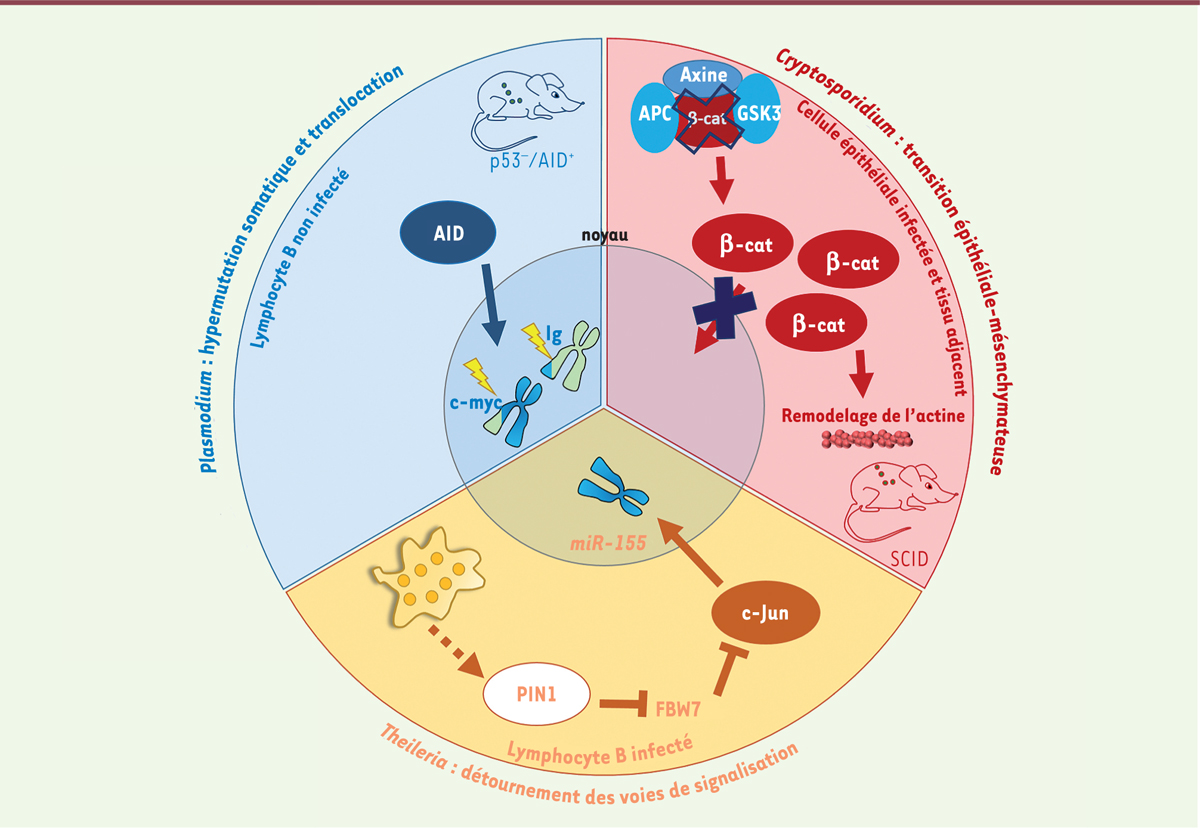Figure 1.

Télécharger l'image originale
Apport des études de parasitologie moléculaire et cellulaire à la compréhension de la cancérogenèse infectieuse. Trois récentes études ont exploré les contributions à la cancérogenèse de Plasmodium, Cryptosporidium et Theileria. Plasmodium contribue à une transformation des cellules B non infectées en augmentant l’hypermutation somatique et la translocation. Cryptosporidium induit une transition épithéliale vers mésenchyme (TEM) par la perturbation de la voie Wnt/β-caténine, et Theileria détourne les voies de signalisation de son hôte pour induire une prolifération incontrôlée. AID : activation-induced cytosine deaminase ; Ig : immunoglobuline ; β-cat : β-caténine ; SCID : severe combined immunodeficiency ; GSK3 : glycogen synthase kinase-3 ; APC : adenomatous polyposis coli ; PIN1 : peptidyl-prolyl cis-trans isomerase NIMA-interacting 1 ; FBW7 : F-box/WD repeat-containing protein 7.
Current usage metrics show cumulative count of Article Views (full-text article views including HTML views, PDF and ePub downloads, according to the available data) and Abstracts Views on Vision4Press platform.
Data correspond to usage on the plateform after 2015. The current usage metrics is available 48-96 hours after online publication and is updated daily on week days.
Initial download of the metrics may take a while.




